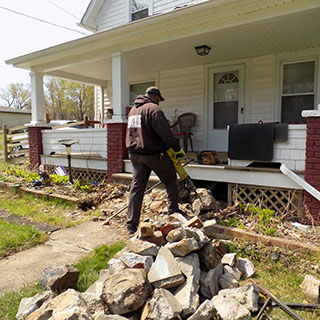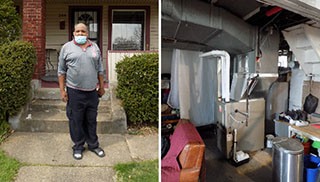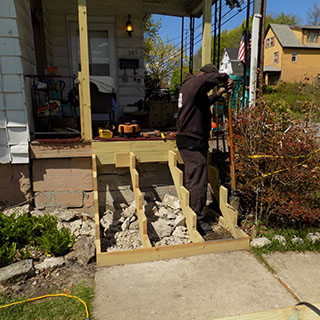Jennifer Roller is the president of the Raymond John Wean Foundation. Headquartered in Warren, Ohio, the Raymond John Wean Foundation’s mission is to advance community-building in Warren and Youngstown, Ohio, through grantmaking, capacity building, convening, and partnerships.
One of the foundation’s strategic goals is to increase the economic opportunity and mobility of residents in both cities. Jennifer Roller has been with the foundation since 2007 and became its president in 2014.
In our conversation, Roller discusses some of the issues surrounding race that communities in the Mahoning Valley face. While the African American community makes up 8 percent of Trumbull County’s population, 66 percent of the population in urbanized Warren, Trumbull County’s seat, is African American. Similarly, African Americans make up 43 percent of urbanized Youngstown, while its county, Mahoning, is 16 percent African American. These two urbanized areas experienced unemployment and poverty more acutely than the rest of the Valley. In Youngstown, for example, unemployment for African Americans is three times higher than it is for white workers. Furthermore, the poverty rate in Youngstown is 36 percent, more than two times higher than that of the county as a whole.
In the summer of 2020, in the context of the COVID-19 pandemic and the Black Lives Matter protests that followed the murder of George Floyd at the hands of the police, both Warren and Youngstown joined thousands of other municipalities around the country in declaring racism a public health crisis. Both communities hope that these events serve as catalysts to address a history of systematic racism and inequality in the region. —Quilian Riano, In the Mahoning Valley chief editor
Explore these related features: Read more about the future of work in the region in a profile of Building a Better Warren. Learn more about efforts to support employee-owned enterprises.
Quilian Riano (QR): As you partner with groups all over the Mahoning Valley, what are some projects or ideas you think are laying the groundwork for the future of work in the area?
Jennifer Roller (JR): Notwithstanding the Raymond John Wean Foundation’s annual investment of $2.5 to $3 million, the needs of this community—one that has experienced severe and consistent underinvestment for at least the last 40 years—persist. To achieve its greatest impact, the Foundation focuses its investment in the cities of Warren and Youngstown, Ohio.
If you consider the low rates of educational attainment and high unemployment, especially for Black people, there is reason to sound the alarm. Though if we are intentional in our approach, we can promote progress and eventually growth. For example, members of several sectors of community leadership were accepted to and have committed to participation in the national model, Communities of Excellence, a systems approach to achieving a high level of community performance. Regionally, the Fund for Our Economic Future, of which several Mahoning Valley foundations are members, has created an alliance of funders to advance economic growth and equitable access to opportunity.
Along with these approaches are notable local efforts: Youngstown Neighborhood Development Corporation and Trumbull Neighborhood Partnership, community development corporations created through public–private partnerships that embody resident engagement–centered models to revitalize our neighborhoods. And Inspiring Minds Warren, a Black-led organization that delivers academic and cultural enrichment, with an explicit commitment to the uplift of Black people. These groups are doing what it takes to ensure a different, better community: mining for data and being transparent about what it reveals, seeking and incorporating community voices, collaborating across sectors, and tracking and measuring progress.
To see the full story from The Architectural League NY, click here.
 ,
,  ,
, 
 ,
,  ,
, 
 ,
,  ,
, 